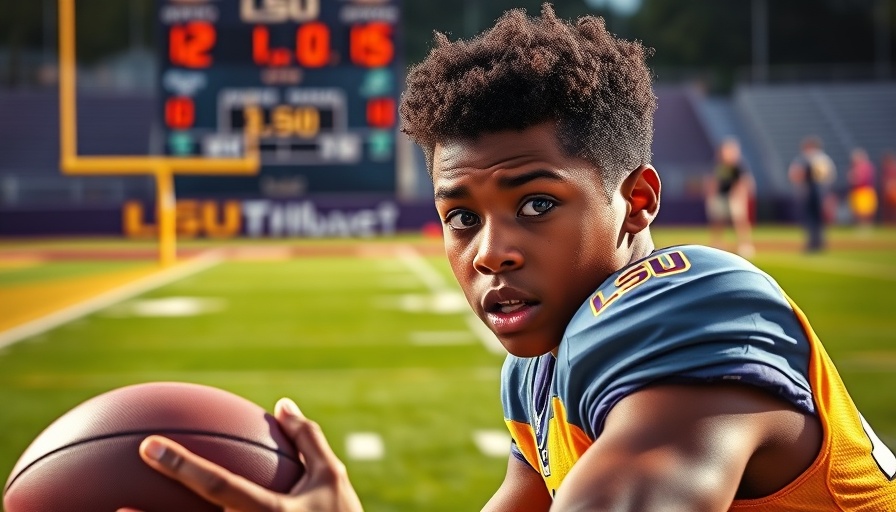
The Alarming Accusations Facing LSU's JT Lindsey
The landscape of college athletics took a troubling turn when LSU freshman running back JT Lindsey surrendered to campus police amidst serious legal troubles. Accused of allowing wanted murder suspects to stay in his dormitory, Lindsey's case has sparked nationwide conversations about accountability in collegiate sports and the influence of personal associations.
The Charges Explained
JT Lindsey faces two felony counts of accessory after-the-fact to second degree murder for allegedly harboring two suspects, 17-year-old Shemell Jacobs and 18-year-old Keldrick Jordan, implicated in the shooting death of Corey Brooks this past May in Alexandria, Louisiana. The gravity of these charges reflects not just personal consequences for Lindsey but broader implications for the community and sports programs aimed at young athletes.
Background Context: The Power of Association
According to reports, the arrests were made after the U.S. Marshals Service contacted the LSU Police Department to locate the suspects. Surveillance footage allegedly captured Lindsey's interactions with the accused, raising troubling questions about his awareness of their reputations. While Lindsey's attorney insists he was unaware of their criminal backgrounds, the incident highlights the dire need for college students to understand the risks associated with personal relationships and peer pressure.
The National Dialogue: Major Sports and Criminality
This case comes at a time when the intersection of sports and criminal activity is under scrutiny. High-profile investigations into the lives of student-athletes often reveal disturbing patterns of behavior, underscoring the need for educational programs about personal accountability. As more college athletes face scrutiny, athletic programs must take a proactive stance to ensure students understand their responsibilities, not only to themselves but to their institutions and communities.
Different Perspectives: The Case of Innocence
While Lindsey's legal troubles are severe, some argue for caution in jumping to conclusions about individual culpability. His attorney, Kris Perret, has stated that Lindsey is fully cooperating with the investigation and looks forward to proving his innocence. This perspective serves as a reminder that accusations protect the presumption of innocence, a principle vital in the pursuit of justice.
Local Impact: LSU's Response
In response to the situation, LSU has temporarily suspended Lindsey from all football activities until his case is resolved. This move aligns with the university's commitment to maintaining a standard of integrity within its athletic programs. However, it also raises questions about the support system in place for young athletes navigating complex social landscapes.
Future of College Sports Obligations
Looking ahead, the case serves as a critical inflection point for not just Lindsey but the entire realm of collegiate athletics. As the situation unfolds, it may prompt universities to evaluate their programs to better arm students against potential pitfalls. A robust understanding of personal responsibility, awareness of one’s environment, and reinforcement of ethical behavior in social circles could prevent future incidents.
Final Thoughts: A Broader Responsibility
As America watches to see how Lindsey’s case unfolds, it urges a broader conversation about the collective responsibilities of student-athletes and their institutions. Defining boundaries, fostering transparency, and laying out definitions of accountability will be key moving forward.
To stay in tune with the latest news and developments surrounding this case and similar stories in collegiate sports, consider following news platforms for continuous updates.
 Add Element
Add Element  Add Row
Add Row 



Write A Comment